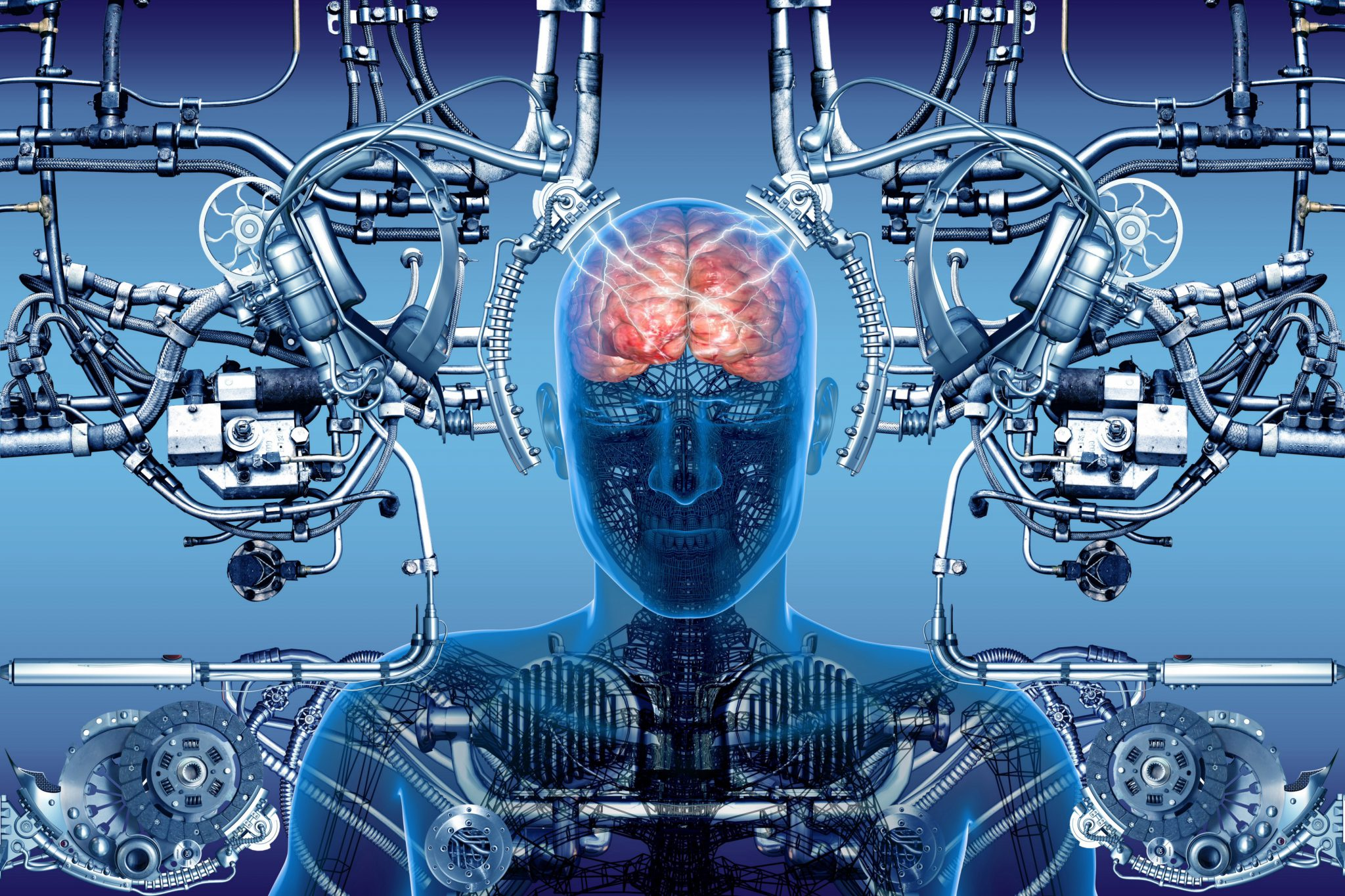Brain-computer interfaces (BCIs) represent a groundbreaking intersection of technology and human capability, promising to revolutionize how we interact with machines and harness our cognitive potential. Companies like Neuralink, spearheaded by visionary Elon Musk, are at the forefront of this innovation, developing brain chip implants that enable mind control technology to assist individuals with paralysis in orchestrating actions simply through thought. The implications of these neurotechnology advancements are monumental, as BCIs open doors to personalized therapies for conditions ranging from spinal cord injuries to speech impairments. However, alongside their transformative potential, it is crucial to address the BCI risks, which echo historical precedents of human manipulation and ethical dilemmas. As the market for brain-computer interfaces continues to expand, it becomes imperative to explore how these powerful tools can be developed responsibly and ethically to truly improve lives without compromising personal autonomy.
Also known as neural interfaces, brain-machine interfaces, or direct neural interfaces, these cutting-edge technologies facilitate direct communication between the brain and external devices. By decoding neural signals, these systems enable users to control computers and prosthetic limbs seamlessly with their thoughts, significantly enhancing quality of life for those with movement disabilities. In addition, the ongoing evolution of neurotechnology aims to push the boundaries of human ability, creating possibilities that were once only the stuff of science fiction. However, the advancement of such technology raises pressing concerns regarding ethical usage and the potential for misuse. Understanding these implications helps navigate the complex landscape of innovation, where the marvels of today could also bear the seeds of tomorrow’s challenges.
Overview of Brain-Computer Interfaces (BCIs)
Brain-Computer Interfaces (BCIs) are revolutionizing the way we think about technology and its interaction with the human brain. These systems, like the brain chip implant developed by Neuralink, are designed to decode neural signals and translate them into actionable commands, allowing individuals with disabilities to gain greater independence. The BCI technology is emerging as a significant field of neurotechnology advancements, with the potential to aid millions suffering from paralysis, stroke, and other debilitating conditions. As these innovations continue to evolve, they promise to unlock new capacities for human cognition, paving the way for groundbreaking therapies.
However, as the popularity and application of BCIs grow, so do the ethical considerations surrounding their use. The implications of brain chip implants raise inquiries about consent, mental privacy, and the potential for misuse by those in power. As we advance in these neurotechnologies, it becomes crucial to balance the benefits against the risks, ensuring that individuals’ minds are not exploited or manipulated. The increasing capability of BCIs to not only read thoughts but potentially influence them necessitates an in-depth dialogue about governance, regulation, and the ethical dimensions of such profound technological capabilities.
The Potential of Neuralink and Mind Control Technology
Neuralink embarks on an ambitious mission to create symbiotic relationships between humans and machines through its groundbreaking technologies such as the brain chip implant. This venture opens up fascinating possibilities for users, enabling them to regain control over their physical and cognitive functions. As demonstrated by the case of Noland Arbaugh, who gained the ability to navigate a computer using only his thoughts, the implications for rehabilitation from paralysis are profound. This kind of mind control technology holds the promise of not only enhancing quality of life but also expanding the horizon of human capability.
Despite this potential, historical precedents remind us of the risks associated with such technologies. Reflections on past abuses—particularly Cold War experiments like MKUltra—underscore the dangers inherent in attempts to manipulate or control human behavior through technological means. Lukas Meier’s cautionary note in his paper indicates that while BCIs offer life-changing benefits, they also pave the way for possible scenarios where autonomy and mental integrity could be compromised. As we integrate mind control technologies into our lives, proactively addressing these ethical challenges is essential to safeguarding individual rights.
BCI Risks and Ethical Considerations
As we delve deeper into the realm of Brain-Computer Interfaces, it is crucial to consider the associated risks that accompany these remarkable advancements. Research indicates that while BCIs, particularly those driven by deep brain stimulation, may help treat conditions like Parkinson’s disease, they can also result in unintended side effects that alter behavior. For instance, the case study where a patient exhibited criminal behavior under stimulation highlights the unpredictable nature of these technologies. Establishing safeguards to protect against such occurrences will be vital in navigating the BCI landscape.
Moreover, the ethical ramifications of monitoring brain activity remain contentious. Concerns have been raised, as seen in China, where devices that track brainwaves are used in educational settings. Such applications can lead to the exploitation of vulnerable populations, especially when implemented without proper oversight. As advancements in neurotechnology continue to accelerate, ensuring transparency and accountability in their deployment is essential to prevent the manipulation and infringement of personal autonomy.
Neurotechnology Advancements and Their Impact
Neurotechnology is rapidly evolving, with advancements enhancing our understanding of the human brain and how we can interface with it. This field encompasses a range of developments, from brain chip implants like those created by Neuralink to emerging techniques in neural mapping and stimulation. These innovative technologies promise to unlock new avenues for therapy, communication, and cognitive enhancement, fundamentally altering the landscape for treating neurological disorders and improving mental health conditions.
However, as with any rapid technological progress, there are significant societal implications to consider. The amazing potential of neurotechnology could become a double-edged sword if not handled responsibly. The temptation to exploit these advancements for mind control or behavioral manipulation poses profound ethical questions. It is crucial that stakeholders engaging in neurotechnology advancements prioritize ethical frameworks to mitigate risks, ensuring that humanity harnesses these innovations for the greater good rather than descending into the dark chapters of history reminiscent of mind control experiments.
The Future of Brain-Computer Interfaces in Society
The future of Brain-Computer Interfaces (BCIs) holds remarkable promise as society grapples with integrating advanced neurotechnology into everyday life. The anticipated market growth indicates a burgeoning industry aimed at revolutionizing how individuals interact with technology, offering unprecedented accessibility for those with physical impairments. As applications expand beyond rehabilitation toward enhancing cognitive functions, society must prepare for a cultural shift in how we view human capability, autonomy, and the role of technology in our lives.
Nevertheless, this future is not without its challenges. The potential misuse of BCIs for surveillance or control, as highlighted by historical precedents, reminds us of the pressing need for robust ethical frameworks and regulations. The dialogue surrounding the integration of brain chip implants and other neurotechnological advances must address consent, privacy, and the implications of altering mental states. By establishing a clear ethical landscape, we can embrace the future of BCIs while safeguarding individual rights and ensuring that these powerful technologies enhance rather than exploit human experience.
Potential Abuse of Neurotechnologies and Mind Control
The specter of potential abuse looms over the world of neurotechnologies, especially concerning mind control. As companies like Neuralink push the boundaries of what is technically possible with brain-computer interfaces, there exists a heightened risk of these capabilities being exploited for unethical purposes. The past provides cautionary tales about the manipulation of human behavior using advanced techniques, which raises important questions about who controls these technologies and for what purposes. This concern emphasizes the need for stringent regulatory measures to prevent scenarios reminiscent of MKUltra where individuals’ autonomy could be compromised.
In a world where BCIs can decode thoughts and possibly influence actions, the implications for personal freedom and mental privacy become critical. Ongoing discussions about the ethical use of neurotechnologies must involve diverse stakeholders, including ethicists, technologists, and policymakers, to navigate the complexities of this emerging field. Such conversations should aim to create guidelines that not only foster innovation in neurotechnology but also prioritize a commitment to human rights, ensuring that individual minds remain unshackled from coercive control.
The Role of Governance in BCI Development
Governance plays a pivotal role in the responsible development and deployment of Brain-Computer Interfaces. As the demand for neurotechnology grows, it becomes increasingly important to establish comprehensive regulatory frameworks that address both safety and ethical concerns. Such governance should not only focus on the technical efficacy of BCIs but also consider broader societal impacts, including issues of privacy, consent, and the potential for misuse. As seen in the warnings of historical abuses, failings in governance can lead to detrimental outcomes affecting individuals and society at large.
Engaging in multi-disciplinary dialogues that include ethicists, medical professionals, engineers, and lawmakers can foster a holistic approach to governance in BCI development. Ensuring that technological advancements align with public interests requires a proactive stance on balancing innovation with ethical imperatives. This approach fosters an environment where neurotechnology advancements can be pursued responsibly, maximizing their potential positively while guarding against exploitation or harmful applications.
Critical Reflection on BCI Technologies
As we stand on the brink of a new era characterized by Brain-Computer Interfaces, it is essential to engage in critical reflection regarding these technologies’ promises and pitfalls. BCIs have the potential to profoundly change the lives of individuals with disabilities, granting them agency and improving their quality of life. However, as with all groundbreaking technologies, we must confront the reality of their implications and ensure that appropriate safeguards are in place to prevent misuse and maintain ethical standards.
The past teaches us valuable lessons about the intersection of technology and human rights. The potential for BCIs to alter consciousness or behavior introduces significant ethical dilemmas that necessitate cautious consideration. By fostering an ongoing dialogue that incorporates diverse perspectives, society can navigate the challenges posed by neurotechnology advancements, aspiring to harness their benefits while upholding the fundamental principles of self-determination and respect for individual rights.
Conclusion: Navigating the Future of Neurotechnology
Navigating the future of neurotechnology necessitates a concerted effort to balance innovation with ethical integrity, especially as brain-computer interfaces reshape our understanding of human capabilities. The advancements represented by companies like Neuralink promise hope for millions but also echo the cautionary tales of history regarding mind control and manipulation. Emphasizing ethical engagement and regulatory oversight will be essential to fostering an environment where these technologies can thrive without compromising personal freedoms.
As we look ahead, collaboration among technologists, ethicists, and policymakers will be vital in crafting a regulatory framework that prioritizes human dignity alongside technological progress. By learning from the past and committing to responsible governance, we can unlock the transformative potential of neurotechnology, ensuring it serves to enhance, rather than control, the human experience.
Frequently Asked Questions
What is a brain-computer interface (BCI) and how does it work?
A brain-computer interface (BCI) is a technology that enables direct communication between a brain and an external device, such as a computer or prosthetic limb. BCIs work by detecting neural activity, translating these signals, and interpreting them into commands that can control devices. This technology has significant potential to assist individuals with disabilities in regaining control and improving their quality of life.
What advancements have been made in neurotechnology related to brain-computer interfaces?
Neurotechnology advancements have seen significant progress in the development of brain-computer interfaces (BCIs). Companies like Neuralink have pioneered brain chip implants that allow users to control devices with their thoughts. Current applications include controlling computer cursors and robotic limbs, showing promise in treating paralysis and neurological disorders. As research continues, the possibilities for BCI applications are expanding rapidly.
What are the potential risks associated with brain-computer interfaces?
While brain-computer interfaces (BCIs) offer remarkable benefits, they also come with potential risks. Concerns include ethical implications, such as mental privacy and consent, as well as the risk of misuse for mind control or psychological manipulation by malicious actors. Historical precedents, such as the unethical MKUltra experiments, highlight the need for careful regulation and oversight of BCI technology.
Can brain-computer interfaces be used for mind control technology?
The possibility of using brain-computer interfaces (BCIs) for mind control technology raises ethical and moral concerns. Although current BCIs primarily assist individuals in controlling devices, advancements might eventually lead to unintended behavioral modifications. This highlights the importance of ongoing research into ethical guidelines and safety measures to prevent misuse in the future.
What is the role of Neuralink in the development of brain-computer interfaces?
Neuralink is at the forefront of developing brain-computer interfaces (BCIs), focusing on creating advanced brain chip implants that enable direct communication between the brain and computers. Founded by Elon Musk, Neuralink aims to revolutionize neurotechnology, offering solutions for conditions like paralysis and enhancing human cognition. Their groundbreaking research seeks to unlock the full potential of BCIs while ensuring ethical considerations are addressed.
How might brain chip implants change the future of neurotechnology?
Brain chip implants signify a groundbreaking direction in neurotechnology, as they enhance communication between the brain and external devices. These advancements can potentially transform how we interact with technology, assist individuals with disabilities, and even offer new methods for cognitive enhancement. As the field of brain-computer interfaces (BCIs) evolves, these implants could lead to unprecedented developments in healthcare and human-computer interaction.
What are the limits of current brain-computer interface technology?
Current brain-computer interface (BCI) technology is still in its infancy, with limitations in precision, accessibility, and application. Most BCIs provide basic functionalities, such as cursor control or simple commands, and often require extensive training. Additionally, there are significant challenges related to long-term implantation and biological compatibility, highlighting the need for ongoing research and development in this field.
Will brain-computer interfaces eventually become mainstream technology?
The integration of brain-computer interfaces (BCIs) into mainstream technology is feasible as research progresses and public acceptance increases. With potential applications ranging from healthcare to communication, the market for BCIs could expand significantly. However, careful consideration of ethical implications and regulatory measures will be crucial to ensure that these technologies are implemented responsibly.
| Key Point | Details |
|---|---|
| Brain-Computer Interfaces (BCIs) | Devices that allow control of computers or prosthetic limbs using brain signals, offering hope for individuals with disabilities. |
| First BCI Implant | Noland Arbaugh became the first person to receive a brain chip from Neuralink, enabling him to control a computer mouse and play chess with his thoughts. |
| Market Potential | The BCI market is estimated to be around $400 billion in the U.S. due to high incidences of disabilities related to spinal cord injuries and strokes. |
| Cautionary Historical Context | A study reviews past abuses, like the MKUltra project that explored mind control, raising concerns about future misuse of BCI technology. |
| Ethical Concerns | Issues regarding self-determination, consent, and mental privacy arise with advancements in BCI technology. |
| Potential Misuse | Researchers warn about the possibility of BCIs being used to extract information or alter behavior, reminiscent of Cold War tactics. |
Summary
The brain-computer interface (BCI) technology represents a transformative advance in neurotechnology with the potential to dramatically enhance the quality of life for those with disabilities. However, this promising technology is accompanied by serious ethical concerns reflected in historical abuses, particularly the potential for misuse in mind control and psychological manipulation. As we embrace the capabilities of BCIs, it is crucial to proceed with caution, ensuring that advancements prioritize self-determination and mental privacy to avoid repeating the darker chapters of technological misuse.



